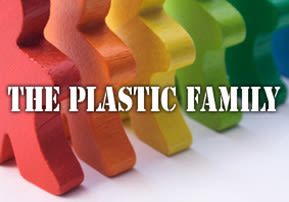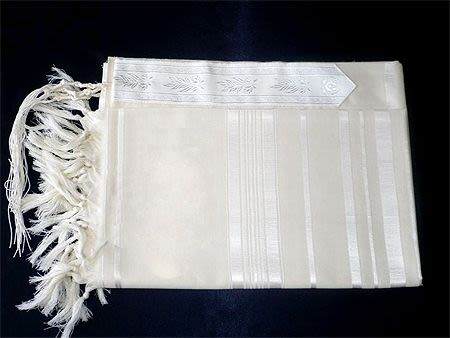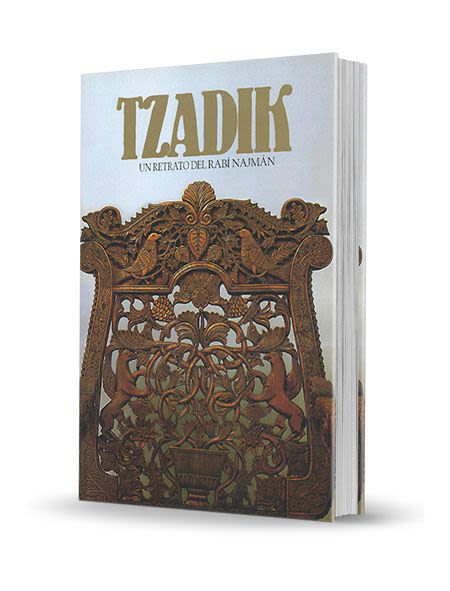
The Plastic Family
This is the tale of a nice family from Middle America – The Plastic family. They found a "perfect solution" that fulfills any need they may have...

The Garden of Riches, Part 14
The fundamental principle in managing personal finances is acquiring the trait of being “happy with one’s lot”. This means that a person aspiring to live a life of emuna will maintain a happy outlook whether blessed with abundance or not. He’ll rejoice in whatever Hashem has allotted him, and thereby live within his means, never making the mistake of accumulating debt and strife, as we’re about to discuss.
The Plastic Family
This is the tale of a nice family from Middle America – The Plastic family. They found a “perfect solution” that fulfills any need they may have with great ease and no fuss. One fine day the family got together: The father Dr. MasterCard, his wife Mrs. Visa, their son Cashcard, and their daughter CreditBalance. Together they decided to visit the giant mall “Spendalot Inc.”.
Upon arriving at the mall they raced to the stores buying everything in sight, while Dr. MasterCard flashed a brand new credit card and bought a new set of professional golf clubs on easy terms by signing the credit-card receipt with a stroke of his elegant pen. Meanwhile, Mrs. Visa emptied out the lady’s department with a deft swipe of her credit card. The children of course not wishing to be outdone emulated their parents in signing receipts. And so at the end of a great day of shopping, the family returned happily home with their spoils: in addition to Daddy’s new golf clubs, there was a new wardrobe for Mommy, new furniture for the entire house, a fridge, two air-conditioning units, a third car for the family, 4 pairs of bicycles (2 for town and 2 for track), and more…
They smiled smugly at the struggling porters coming up the stairs with their large parcels. Deep inside they couldn’t help feeling sorry for their poor neighbors, living hand to mouth, unaware of the kingly lifestyle afforded to those of a low income by the wonders of modern banking.
Several days later, after the initial excitement had worn off a little, Dr. MasterCard received a phone call from his bank manager requesting his immediate presence at his office. Unperturbed, he took his wallet bulging with checks and credit cards, smiled confidently at his wife got into his new car and off he went to the bank, all the while enjoying the rustle of the nylon still covering the new car’s upholstery.
Dr. MasterCard stepped into the bank and with a friendly wave to the cashiers entered the branch manager’s office. “Is there a problem?” asked Dr. MasterCard.
“I’m afraid there is,” said the branch manager. “You owe the bank a great deal of money, something to the tune of one hundred and fifty thousand dollars! Your credit cards are way overdrawn.”
Dr. MasterCard kept his cool, and apologetically said, “Really! Is that all you called me in for? There’s absolutely no problem at all, We’ll fix things this instant!” Calmly pulling out his checkbook, he wrote the bank a check for the sum of one hundred and fifty thousand dollars….
The hypnotic illusion
With the “gracious assistance” of checks and credit cards a person becomes enslaved to the banks, turning his days and nights into unbearable burdens of incessant suffering.
One of the greatest mistakes of convoluted logic is to think that signing for money and using credit cards solves problems. On the contrary, as the debts mount up the problems increase in ever widening and complex circles. Since each check signed needs to be covered and each charge-card purchase needs to be repaid, things cannot continue forever and without limits! Do you realize what a hypnotic illusion it is to think that you can clear your debts with a stroke of a pen?!
In fact the opposite is true. Not only do these new inventions not clear debts, but they create new ones. They allow a person to make purchases which are unnecessary and accrue interest payments leading to even greater debt. Facts show that “plastic” is not the solution to debt.
Don’t ever sign a check unless it can be completely covered. There is no magic potion to avoid the pitfalls of signing uncovered or “rubber” checks.
When purchasing by way of installment payments, one must remember that each payment consumes a portion of his household budget. When too many repayments accumulate, one’s entire salary will be swallowed up before he sees it, and poverty strikes. He may drive a fancy car but he won’t have money for bread! Today’s banking allows for many payment channels, such as checks and credit cards, but they also allow for easy spending beyond a person’s means. Ease of spending easily creates debtors.
Hashem decides your standard of living
These banking inventions are the tool that the Evil inclination uses to undermine emuna and trust in Hashem. A person should believe that Hashem sets the limits of his livelihood, and that he must make do within these parameters.
Hashem expects you to live within your means. One is obliged to give ten percent to charity, then be “happy with his lot” with whatever remains.
Someone who is unhappy with his lot, stubbornly insisting on a lifestyle way beyond his means by taking on a debt burden while wantonly signing checks, lacks emuna. In wanting more than Hashem has allocated to him he becomes enslaved to the Evil Inclination.
If the amount given him by Hashem just isn’t enough for all one’s needs, he can always turn to Hashem and ask for a free gift in addition to his monthly wage. He must give thanks to Hashem for what he already has, and humbly ask for his additional needs. He should say: “Master of the World, thank You for giving me such and such amount of money, however I’m having trouble making ends meet. I know that my sins have caused You to limit my livelihood. It is clear to You, Master of the World, that it takes time until a person can become fitting and worthy, so for now please give me additional funds out of mercy, from Your outstretched palm…” Each person should then add whatever personal prayers and requests that they currently have.
To be continued.













Tell us what you think!
Thank you for your comment!
It will be published after approval by the Editor.